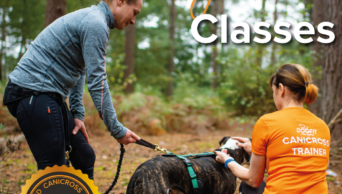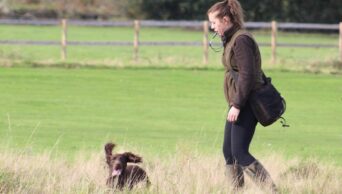Time To Talk Day – How gundog training saved Jason Mayhew
Blog
February 3, 2022
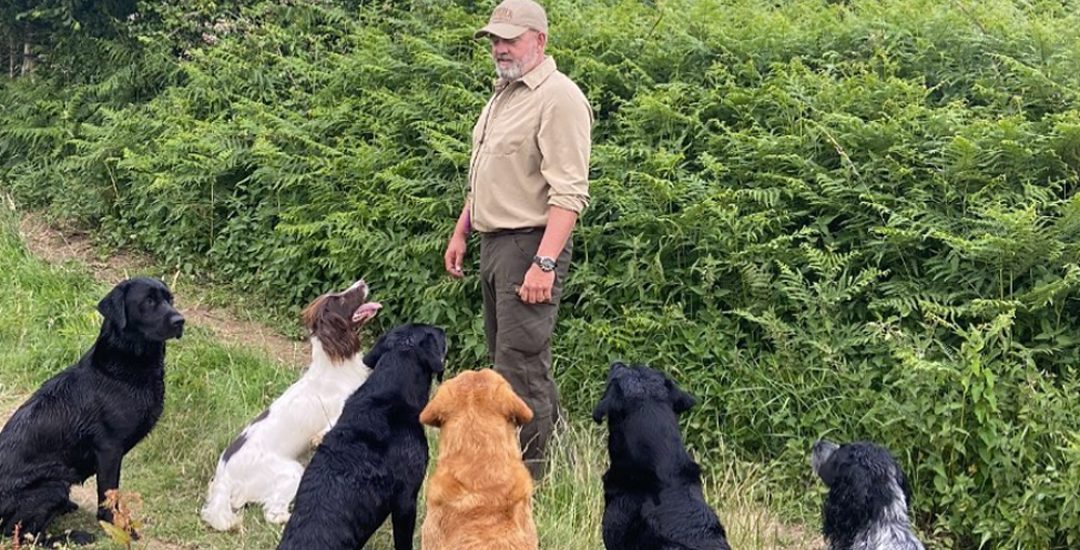
Mental health problems can affect anyone at any stage of life, and it is estimated that 1 in 4 people will experience a mental health problem of some kind each year in England.
Many of you will know renowned gundog trainer Jason Mayhew, and it’s more than likely that you will have spotted him in one of the many fantastic gundog training videos he has produced for us. However, what you might not know about Jason is that he has battled with PTSD (Post Traumatic Stress Disorder) and how this led to him working in the world of gundogs.
We understand that for some, it can be incredibly difficult to talk about their mental health and past experiences, however Jason very kindly agreed to do an interview with us to help raise awareness of mental health problems and PTSD this “Time To Talk Day”; which falls on Thursday 3rd February.
Tell us a bit about yourself
“My name is Jason Mayhew, and I’m a retired firefighter and now a professional gundog trainer.
I have 3 Labradors, and my wife has 2 English Springer Spaniels and a Labrador, all of whom we have or are still trialling. I also have a couple of client’s dogs that are permanently with me for trialling.
I’ve made up 2 Field Trial champions and have qualified 3 times for the IGL Retriever Championship, and in 2022 my client’s dog gained a Diploma of Merit.
I’m based in West Sussex on the Cowdray Estate and have recently been shortlisted for the 2022 British Shooting Awards as ‘Gundog trainer of the year’.”
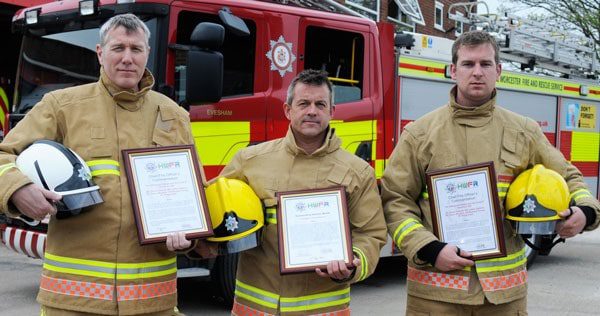
What did you do before gundog training?
“I was a firefighter before I turned my hobby into a job. I was part of the Herefordshire and Worcestershire Fire Rescue Service. Before that, I’ve done a few different jobs, but my favourite was being a gamekeeper.”
Would you be willing to talk about your PTSD with us?
“I suffered from Post-Traumatic Stress Disorder as a result of some high-risk jobs when I was in the fire service. The last job that tipped me into poor mental health was a shout in 2010. I was part of a team that was called out to a car in the water, with people trapped inside.
Without going into too many details, one adult and child survived, but despite numerous efforts; unfortunately, one child did not make it.”
Jason was awarded an Outstanding Service Medal for his bravery, courage and fortitude under the most arduous of emotional and physical conditions.
“It was almost 6 months after this that things were not right with me. I was very angry all the time, stopped taking care of myself, and little jobs like washing up or changing the bed started to get left. I was being enveloped by darkness and I had no idea what was happening, but why would I? I had never had it before!
I had the mindset that I’m a firefighter, a man, and we don’t suffer because we are brave. However, I struggled to be in groups and hated going out. I felt suicidal a lot of the time, because I felt like it was my fault that I couldn’t save the child.
The hardest part was the different triggers that surrounded me and brought the job back to the forefront of my mind, I called these triggers “intrusions”. Bad stress can also be a trigger, and for me, colours and words are; orange is particularly bad and I still don’t drink still water. These intrusions still happen, but a lot of the time I can control them.
At times I can be quiet, and this means I can come across as rude from not joining in conversations and becoming withdrawn. However, PTSD is now recognised as a disability, and I couldn’t be more grateful to my Cognitive Behavioural Therapist who was brilliant and saved my life.”
How did you get into gundog training?
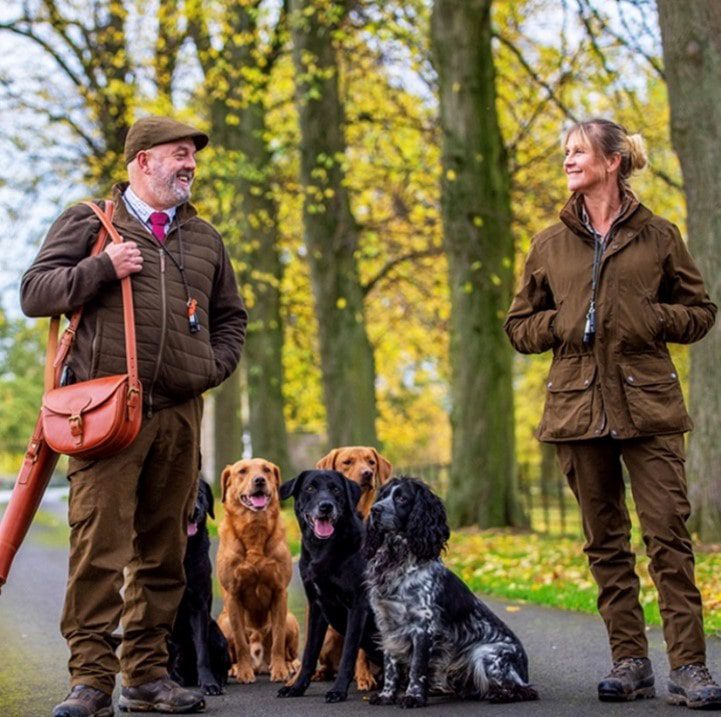
“I’ve been training dogs since 1999 as a gamekeeper, but I won my first trial in 2004 in Cornwall.
I used to help handlers and trained with some friends. Trialling was always hard to do in the fire service, so tests were my way out; I won a lot of awards in tests.
When I was suffering, I had time away from the service and as a result, threw myself into training. When I then left in 2016, I turned this hobby into a business.”
How did your dogs help you through the difficult times?
“Gundog training took my mind away from my personal horrors, they gave me something to focus on. My family and in particular, Norman and Sandra Onens wrapped a protective blanket round me while I got to grips with my mental health.
It gave me drive to go outside, to have the sun on my face. Slowly I started to enjoy life and loved imparting knowledge to other handlers. I had a dog given to me by Norman and Sandra, which in 2014 won a novice! In 2016, he took me to my first IGL Retriever Championship and in 2017 he took me back; making him up to FTCh.
In short, I feel free when I train dogs and that’s a good thing.”
Have you always had dogs and an interest in training?
“My dogs are my release.
Flint was my rock when I was poorly. He was a yellow lab who I could rely on, he was dependable and never judged me.
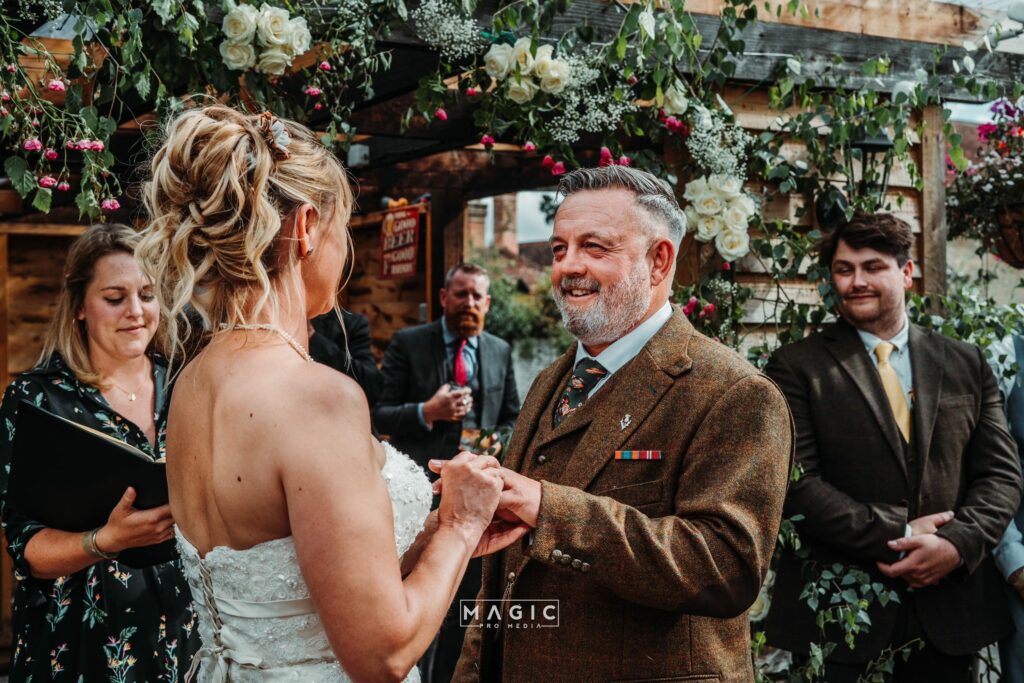
My life without my pack would be lost. Even though I have a great family around me, it’s the wagging tail on my leg, the cuddles and the training that gives me the greatest pleasure. I’ve been incredibly blessed to have such good dogs.
Since becoming professional, I have made 2 Field Trial Champions, become a panel judge, got married, moved house and been enveloped by the most amazing estate that is Cowdray! My Auntie use to say “Keep kicking kid”, and that’s what I did. Once I accepted my mind was not as it was once was, I knew what I wanted to do in life.”
What advice would you share with someone else struggling with their mental health?
“It’s hard to give advice to folk who suffer with PTSD, because it’s so personal. While a lot of people say, “pull your socks up” and “get a grip”, you simply can’t. Your brain function has changed, and you will need help.
Many people will judge, forget or not understand. I’ve even had past experiences where I have been in trouble because my quietness was mistaken for rudeness!
However, the process starts with you being brave enough to ask for help. Once that is done, let the experts help. It takes time, a lot of time. If you know someone who suffers, go and see them, talking is good; but understand that many will only let you see them when they are well.
This February the 3rd, if you see someone who is not quite themselves, ask if they are ok; after all it is ok not to be ok.”
Once again, we would like to thank Jason for his openness. If anything highlighted in this blog has affected you, we have included some links to charities that are here to support you too:
https://www.mentalhealth.org.uk/
You can also call Samaritans for free, 24 hours a day, 365 days a year on 116 123.

